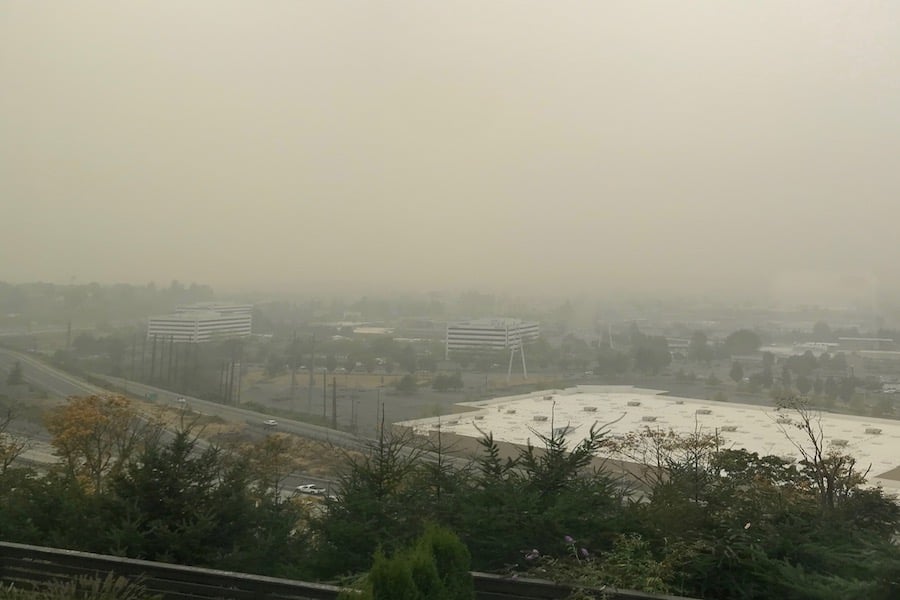“Completely smoked out”: Wildfires impact students from West Coast
On a normal day, freshman Erin Mannschreck can see Seattle and Renton, Wash., from her backyard. As the West Coast wildfires raged, the entire region was covered in smoke, limiting her view and resulting in poor air quality, she said.
September 27, 2020
West Coast residents at Northwestern have witnessed fires in previous years, but the effects of the 2020 wildfires have been especially widespread.
Wildfires have burned millions of acres across the West Coast since late August, causing death, displacement and destruction. While several fires are still raging, the situation has improved from earlier this month, when record-breaking poor air quality forced residents indoors for weeks and eerie orange-red skies hung over San Francisco and Seattle.
Weinberg freshman Erin Mannschreck said she and her family in Washington dealt with negative effects on their health from the smoke. Mannschreck’s family has allergies, and Mannschreck and her sister both have asthma — two conditions the fires exacerbated, despite her family staying inside “98 percent of the day,” Mannschreck said.
But Mannschreck said the fires strained her mental health even more than her physical health. Wildcat Welcome’s upbeat programming stood in stark contrast with the devastation and fires raging around her, she said.
“It’s hard to stay positive when you’re trapped inside for two weeks and it’s all gray and you’re feeling sick,” Mannschreck said.
Some underclassmen, who are not allowed to move to Evanston until Winter Quarter, said the fires have been an additional stressor topping off an already difficult start to the school year.
Medill freshman Alexa Crowder learned of NU’s decision to bar underclassmen from campus as the fires worsened near her home in California.
“It was definitely sad to see the Northwestern community starting in this smoke-free environment and I’m sitting here, completely smoked-out,” Crowder said.
Medill sophomore Kikue Higuchi said she wasn’t too concerned at the onset of the wildfires, but she ended up nearly having to evacuate when a fire came within 10 miles of her home in California.
Higuchi decided to move to Evanston for Fall Quarter, though the fires were not a factor in her decision. As a result, she was able to escape the fires, but she was left worried about her family’s safety.
“It’s just an added factor of stress thinking, ‘Oh, is my dad okay? Is my grandma okay?’” Higuchi said.
When President Donald Trump visited California to address the wildfires, he refuted climate change’s role in the wildfires in a controversial address.
Communication Prof. Erik Nisbet, whose research is focused on the intersection of communication and environmental policy, said while climate change wasn’t the “driving cause” of the fires, the phenomenon certainly worsened the damage, and politicization has complicated the event.
“It’s a difficult situation because obviously climate change is contributing to this,” Nisbet said. “The question is, ‘How do we best acknowledge the role of climate change without further increasing polarization about the natural disaster itself?’”
Email: [email protected]
Twitter: @charvarnes11
Related Stories:
— How to help victims of California wildfires this holiday season
— California Wildfires impact Northwestern students, cause concern


